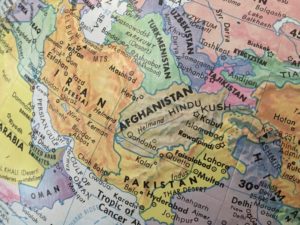Many Afghans are Still Stuck in Purgatory. We Must not let their Plight Fall off our Agenda
This excerpt from the the Globe and Mail discusses the Government of Canada’s promise to resettle thousands of Afghan refugees and the need to fast-track the applications of those at high risk.

As Justin Trudeau’s cabinet ministers gather virtually for a three-day retreat that begins on Monday, they will be preoccupied with the latest crises of the day: Omicron, inflation, Ukraine. But we ask them to first prioritize Afghanistan, and people like Khatera Ahmadi.
Ms. Ahmadi fled Afghanistan for Pakistan early in October, 2021. As a female anchor for the all-woman station Zan TV, she knew that she had a target on her back – and that she had to get out of Kabul.
She may have expected hardships. But she didn’t expect to still be in Pakistan, four months later. She didn’t expect to still be receiving death threats. And she didn’t expect to lose the child she was carrying when she first arrived.
Ms. Ahmadi has experienced unimaginable personal tragedy. Yet aspects of her situation are also far too typical.
Last year, thousands of Afghans at risk escaped Kabul after it fell to the Taliban. They’ve since been in limbo, stuck in these “lily pad countries” as they wait for a visa solution that never comes. They are the lucky ones. Far too many remain in Afghanistan, facing ever bleaker prospects.
Security experts expect Afghanistan to explode into violence. As the winter grinds on, an Afghan protest movement against “the presence of Pakistan” in Afghanistan grows – a situation that also threatens to destabilize Pakistan, as Prime Minister Imran Khan’s Taliban-supporting government struggles to contain extreme Islamist elements.
Food insecurity is widespread. The continuing freeze on its economy is creating extraordinary dependency on outside aid. World Food Program head David Beasley estimates that 97 per cent of households there face severe poverty.
It is still possible for Afghans to secure visas for travel to third countries, but it is getting much more difficult. Last fall, Pakistan went from accepting undocumented people, to requiring passports, visas and then proof of COVID-19 vaccination. By December, the Pakistani government announced that all Afghans in Pakistan “improperly” would be sent back within three months.
Ms. Ahmadi, her partner and her colleagues all have visas. Some have even registered with the United Nations High Commissioner for Refugees (UNHCR) for added protection. But as the months pass, Afghans in Pakistan need to renew their visas; some need to renew their passports. Each interaction with officialdom is fraught.
The Government of Canada holds out hope to Ms. Ahmadi and others. Canada has committed to resettling 40,000 Afghans; to date, approximately 7,000 have reached our shores. For Ms. Ahmadi, her resettlement could come through the humanitarian stream, which prioritizes asylum to journalists at risk, persecuted minorities, women leaders, LGBTQ and human-rights defenders. Some will be supported by government – those who can demonstrate “a sustained relationship” with Canada. Thousands more will need private sponsorship.